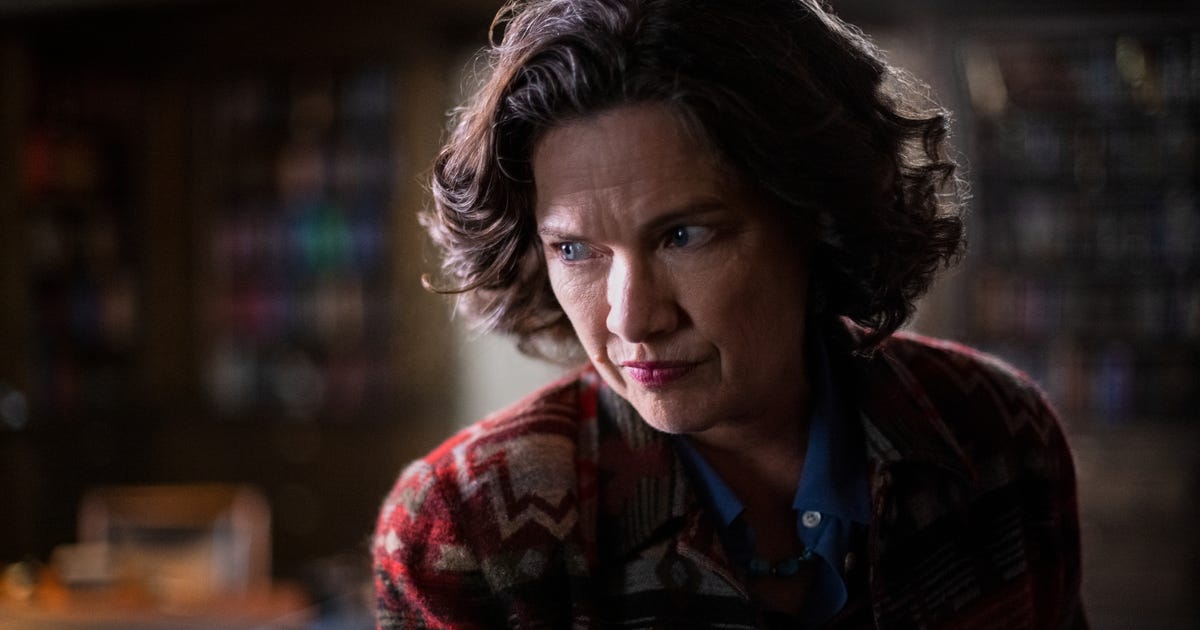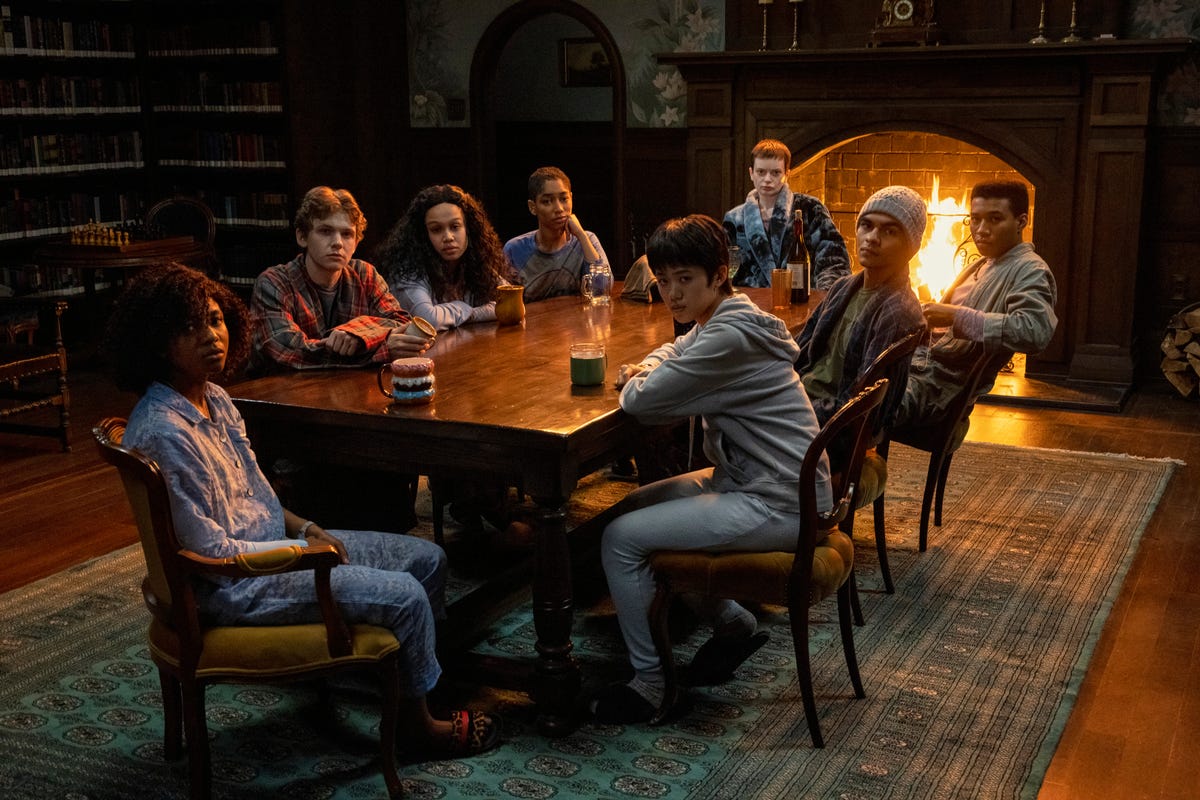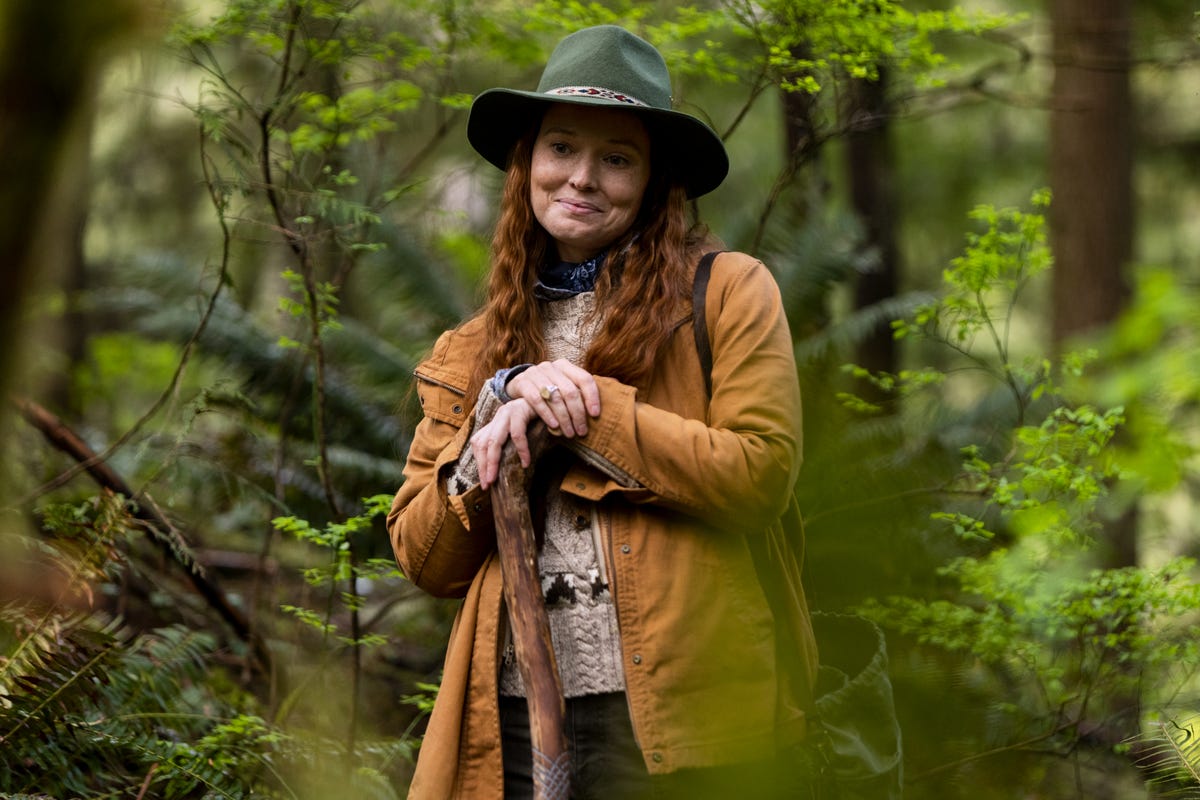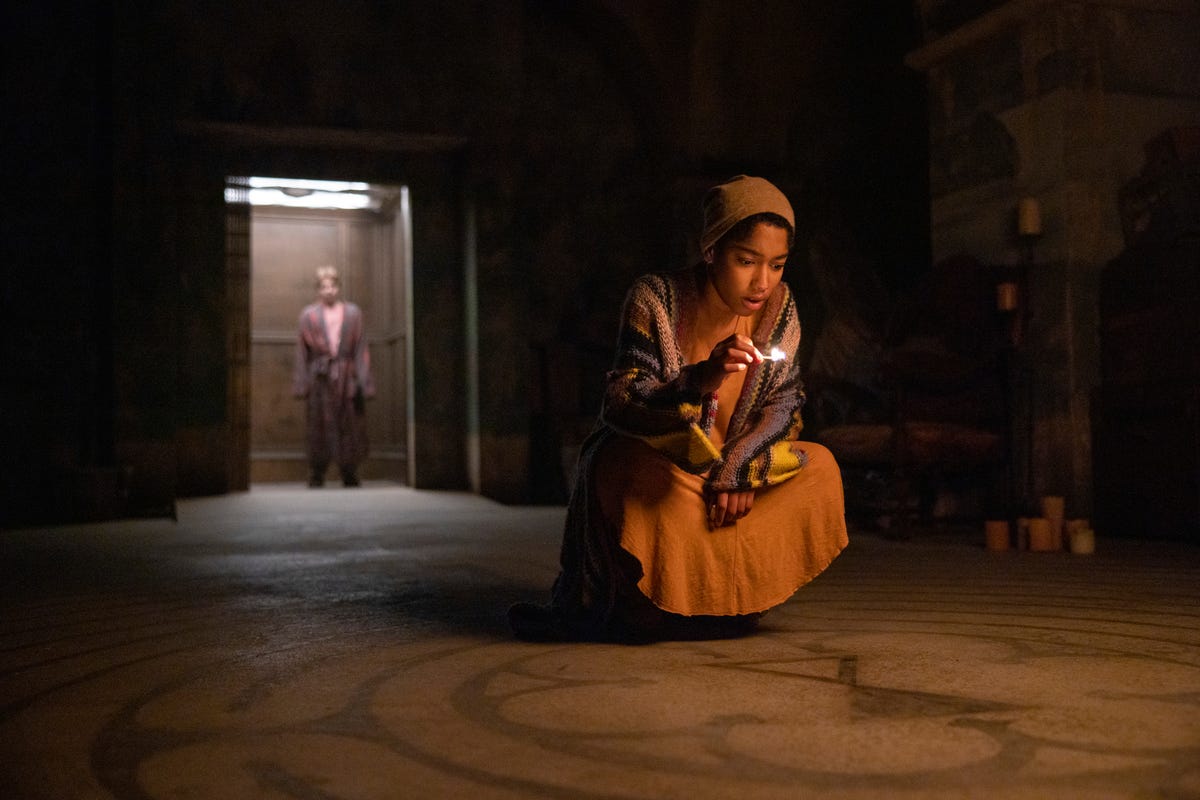
The first time Mike Flanagan tried to adapt Christopher Pike’s young adult novel The Midnight Club, Pike’s publisher sent Flanagan a cease and desist letter. Now, after carving out a career of “prestige horror” offerings — from the critically acclaimed Haunting anthology to Midnight Mass — the director has finally earned a shot at taking on Pike’s material.
The Midnight Club, a 10-episode first season streaming on Netflix, looks and feels like a chapter from the Flanaverse. Yet it has all the hallmarks of a young adult fantasy. It’s populated by ghosts, witches, zombies, cyborgs, aliens and more. Its elevator pitch: The Fault in Our Stars meets Are You Afraid of the Dark?
But The Midnight Club is far more disturbing than it sounds. A serial killer, a cult and reflections on mortality elevate The Midnight Club to a more sophisticated realm. At its core, The Midnight Club is a moving portrait of those processing their impending death, when their lives have barely begun.

The members of The Midnight Club in their usual meeting spot.
Eike Schroter/Netflix
The Midnight Club itself is the name of a meeting between terminally ill teenage patients at Brightcliffe Hospice. These patients — Sandra (Annarah Cymone), Anya (Ruth Codd), Spence (Chris Sumpter), Natsuki (Aya Furukawa), Kevin (Igby Rigney), Cheri (Adia) and Amesh (Sauriyan Sapkota) — creep into the library at night to tell each other ghost stories. Drawn from other Pike novels and played out as mini-movies, these fantastical stories reflect reality more than you’d think. They allow the patients, facing their mortality, to leave something behind when they’re gone.
The newcomer to these longstanding halls is Ilonka (Iman Benson). A once-prospective Stanford student, Ilonka’s future fades with the ringing in her ears when she receives a shocking doctor’s diagnosis. With her fiercely bright and curious mind, Ilonka is the perfect investigator into the strange happenings at Brightcliffe. Aside from a “possessed” elevator and a ghost creepily named Cataract Woman, a mystery about a potential cure propels the main story forward.

Samantha Sloyan is magnetic as Shasta.
Eike Schroter/Netflix
Like ’80s-set The Haunting of Bly Manor, The Midnight Club is a period piece. Set in the ’90s, it drops era-specific alternative/indie songs over the credits. An eerie glare shines over characters dialing up the internet on their chunk computers. In stark contrast, Brightcliffe breathes the 1900s. The design of this haunted house is meticulous. Circular occultist symbols are seemingly echoed in the stained glass windows and arch hallways — or is that just a charming coincidence?
Similar to Midnight Mass, The Midnight Club dangles a veracity to its impossible elements, so that its main characters might just think a magical cure is real. With characters so close to the brink of death, any escape, no matter how fantastical, is worth exploring.
In sensitive discussions, other figures — such as mysterious Dr. Georgina Stanton, played by scream queen royalty Heather Langenkamp from A Nightmare on Elm Street — advocate accepting death and appreciating life. Others seek to prolong life through less-established means, such as hippy-type Shasta, played by an always-magnetic Samantha Sloyan. Along with Rahul Kohli and Zach Gilford, Sloyan is one of several from Flanagan’s regular acting troupe to help tell his latest story.

Prepare for occultist symbols in The Midnight Club.
Eike Schroter/Netflix
Inevitably some of the ghost stories are more exciting, moving and distressing than others, but they all fit surprisingly smoothly into the framework of episodic mini-movies. It’s the climax of the 10 episodes, the same length as The Haunting of Hill House, that doesn’t necessarily pay off in a way that wallops you in the chest — a side effect of setting up the series for more to come.
Still, as a whole, season 1 is immense. It might not be the same personal tour de force exposé on faith as Midnight Mass, but The Midnight Club echoes a compelling meditation on belief and its ability to heal. Co-created with Bly Manor producer and writer Leah Fong, The Midnight Club is a careful, graceful representation of teenagers reconciling with terminal diseases and death. It deals with other serious areas — self-harm, sex, alcohol and drugs — but tragedy isn’t the defining factor. The Brightcliffe kids all have a sense of humor. With compassion connecting them, love is the prevailing force no matter how dark the corridors become.
Ailing heroes face their impending doom in Mike Flanagan’s take on young adult horror. The Midnight Club is a unique, absorbing dissection of the power of belief — reaching far beyond the realm of regular teenage fare.
